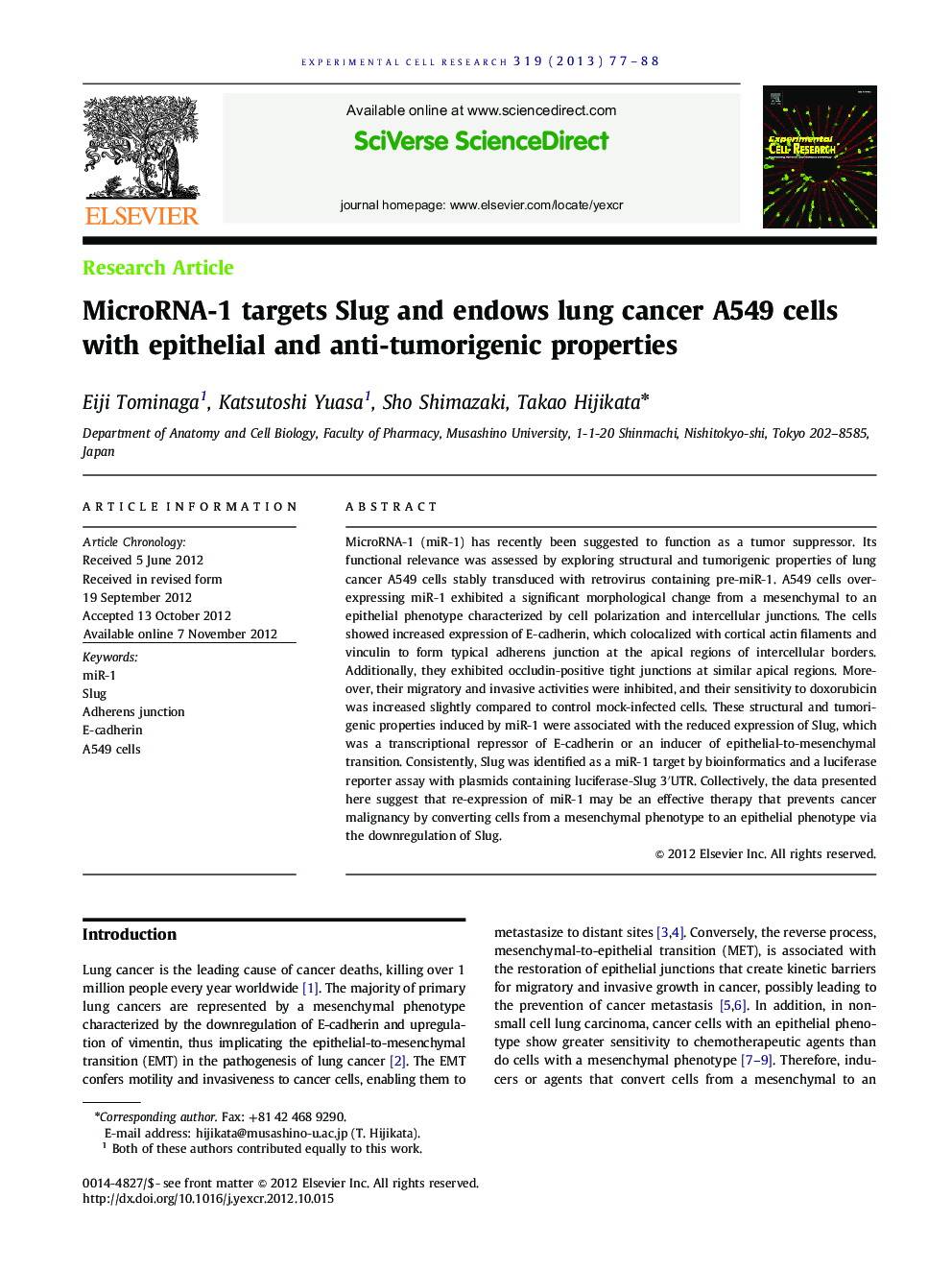| Article ID | Journal | Published Year | Pages | File Type |
|---|---|---|---|---|
| 2130568 | Experimental Cell Research | 2013 | 12 Pages |
MicroRNA-1 (miR-1) has recently been suggested to function as a tumor suppressor. Its functional relevance was assessed by exploring structural and tumorigenic properties of lung cancer A549 cells stably transduced with retrovirus containing pre-miR-1. A549 cells overexpressing miR-1 exhibited a significant morphological change from a mesenchymal to an epithelial phenotype characterized by cell polarization and intercellular junctions. The cells showed increased expression of E-cadherin, which colocalized with cortical actin filaments and vinculin to form typical adherens junction at the apical regions of intercellular borders. Additionally, they exhibited occludin-positive tight junctions at similar apical regions. Moreover, their migratory and invasive activities were inhibited, and their sensitivity to doxorubicin was increased slightly compared to control mock-infected cells. These structural and tumorigenic properties induced by miR-1 were associated with the reduced expression of Slug, which was a transcriptional repressor of E-cadherin or an inducer of epithelial-to-mesenchymal transition. Consistently, Slug was identified as a miR-1 target by bioinformatics and a luciferase reporter assay with plasmids containing luciferase-Slug 3′UTR. Collectively, the data presented here suggest that re-expression of miR-1 may be an effective therapy that prevents cancer malignancy by converting cells from a mesenchymal phenotype to an epithelial phenotype via the downregulation of Slug.
► MiR-1 overexpression promotes the formation of adherens and tight junctions. ► MiR-1 overexpression restores the apico-basal polarity of cells. ► MiR-1 may convert cells from a mesenchymal to an epithelial phenotype. ► MiR-1 enhances E-cadherin promoter activity possibly by Slug downregulation. ► Anti-tumorigenic effects of miR-1 may correlate with its downregulation of Slug.
